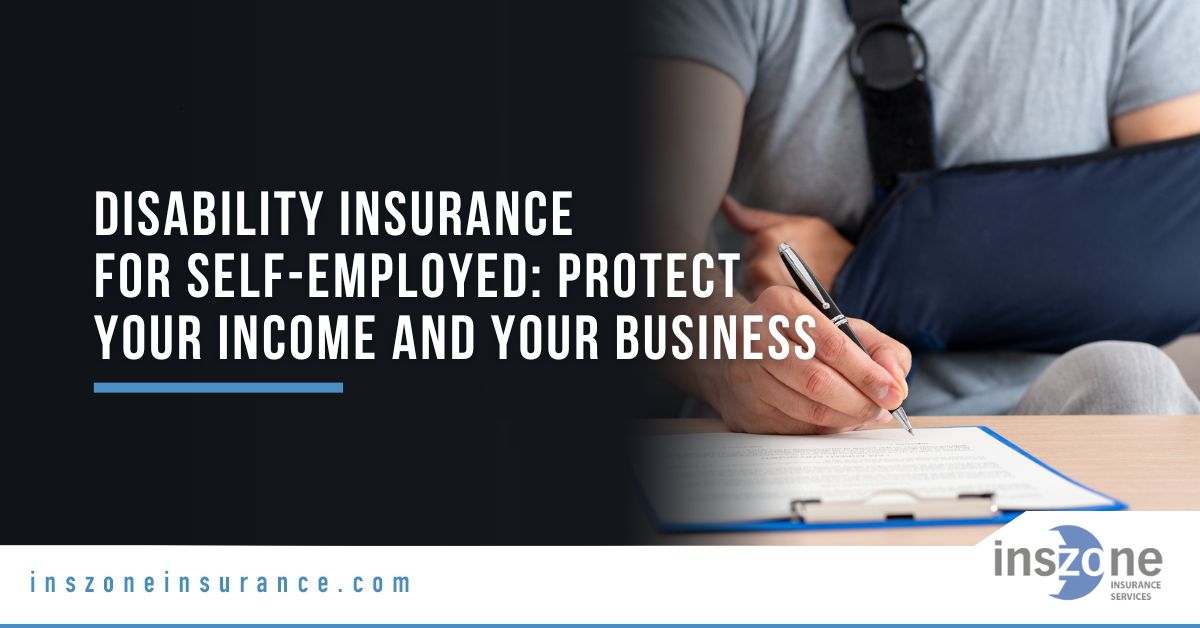Running your own business as a freelancer, entrepreneur, or independent professional brings freedom, flexibility, and fulfillment—but it also means taking on financial risks that traditional employees don’t face.
When you’re self-employed, your income depends on your ability to work. An unexpected illness or injury can halt that income overnight. That’s why disability insurance for self employed professionals is essential. It provides a financial safety net that helps you maintain stability, protect your business, and focus on recovery.
Do Self-Employed People Need Disability Insurance?
Absolutely. When you’re self-employed, there’s no employer-provided plan to rely on. If you become unable to work, self employed disability insurance ensures that you continue to receive income, protecting both your personal finances and your business operations.
Statistics show that roughly one in four workers will experience a disabling injury or illness before retirement. Without self employed disability coverage, even a few months without income could have lasting financial consequences.
Why it matters:
- Replaces lost income if you can’t work due to illness or injury.
- Helps cover personal bills and business overhead.
- Provides peace of mind for freelancers, contractors, and small business owners.
Having a plan in place allows you to keep your business viable while you recover.
What Does Disability Insurance Cover for Freelancers or Business Owners?
Disability insurance for business owners covers income loss when you can’t perform your work duties because of a qualifying illness or injury. It generally comes in two forms:
- Short-Term Disability Insurance for Self Employed: Provides income replacement for several weeks to six months. It’s useful for temporary disabilities but can be costly and harder to obtain individually.
- Long-Term Disability Insurance (LTD): Offers coverage for extended periods—sometimes until retirement. It’s the best option for self-employed professionals who rely heavily on consistent income.
Individual disability insurance policies for the self employed can be customized around your unique needs, including:
- Monthly Benefit: Replaces 60–80% of your regular income, typically tax-free if paid with after-tax dollars.
- Benefit Period: Ranges from two years to age 65 or beyond.
- Elimination (Waiting) Period: The time between disability onset and when benefits begin—commonly 30 to 90 days.
- Definition of Disability: “Own Occupation” (covers you if you can’t perform your specific job) vs. “Any Occupation” (covers you only if you can’t perform any job).
For many, individual disability insurance self-employed policies are the most flexible and protective option available.
How Much Does Disability Insurance Cost for Self-Employed Workers?
The disability insurance cost self employed professionals pay depends on several factors: age, occupation, income, health, benefit amount, and waiting period.
As a general rule, monthly premiums for best disability insurance plans for entrepreneurs range from 1% to 3% of your annual income. For instance, a self-employed professional earning $100,000 per year might expect to pay $80–$250 per month for a high-quality long-term policy.
To manage premiums, consider:
- Extending your elimination period if you have savings to cover initial downtime.
- Accurately classifying your job to qualify for the best rates.
- Choosing realistic benefit and coverage limits aligned with your needs.
How Much Is Disability Insurance for Self Employed Professionals?
When determining how much is disability insurance for self employed individuals, it’s essential to evaluate both personal and business expenses. Income replacement should cover ongoing obligations while you recover.
Personal Expenses:
- Rent or mortgage payments
- Utilities and groceries
- Healthcare costs and insurance premiums
- Education and childcare
- Debt or loan payments
Business Expenses:
- Office rent or mortgage
- Employee wages or contractor fees
- Equipment leases and utilities
- Taxes and business insurance
For freelancers or entrepreneurs with high overhead, pairing individual disability insurance self-employed with Business Overhead Expense (BOE) coverage provides a fuller safety net. BOE policies reimburse operating expenses like payroll, rent, and utilities if a disability prevents you from working—keeping your business afloat until you return.
Best Strategies for Managing Costs and Coverage
To secure the best income protection insurance for self-employed individuals while keeping premiums manageable, follow these proven strategies:
- Extend Your Waiting Period: Opting for a 60- or 90-day elimination period can lower costs significantly.
- Bundle Coverage: Combine insurance for self employed policies—like life, health, or business liability—for potential discounts.
- Work with a Specialist: An experienced broker can compare multiple carriers, identify hidden policy differences, and customize your coverage.
Partnering with the right advisor ensures your plan fits both your budget and long-term financial goals.
Why Work with Inszone Insurance?
Selecting the best insurance for self employed professionals requires expertise. At Inszone Insurance, we specialize in personalized disability insurance solutions for freelancers, entrepreneurs, and small business owners.
Our experienced brokers can:
- Compare multiple carriers to find the best value and terms.
- Customize policies for your specific occupation and income needs.
- Assist with policy management, renewals, and claims support.
Protect Your Livelihood with Self-Employed Disability Coverage
Your ability to earn an income is your most valuable asset. With disability insurance for freelancers and business owners from Inszone, you can safeguard that income against life’s uncertainties—ensuring your lifestyle, business, and financial goals remain secure.
Contact Inszone Insurance today to compare disability insurance options and find the right plan for your business.
(Sources: Council for Disability Awareness, NAIC, LIMRA Disability Statistics 2025, U.S. Small Business Administration, Insurance Information Institute.)





